Business
Sharp learning curve for bosses as WFH goes global

LONDON (Reuters) – Two weeks into the coronavirus lockdown and Sergei Holmeckis, a boss at Deutsche Telekom’s Czech operations in the city of Brno, was frustrated with staff video calls. His team didn’t like turning on their cameras and the discussion was stilted.
“I started to show them my cat,” Holmeckis said. “It showed the human side of me more and really changed the perception. It got people to switch on their cameras and be more engaged.”
Such tactics obviously won’t appeal to everyone. But they do show how the world’s biggest experiment in working from home is forcing managers to reassess their methods – especially as surveys predict higher levels of remote working post-pandemic.
Before the new coronavirus began spreading, just 2.9% of the world’s employees were working exclusively or mainly from home, according to the International Labour Organization (ILO), a Geneva-based UN agency.
Within weeks, that figure exploded as social distancing forced companies to launch telework schemes. An Argentinian study found that 93% of large firms had turned to telework; in Britain, half of all employers said that by late-April the bulk of their staff were working from home.
The exercise was often chaotic, with scant regard for what tasks could be performed at home. Many workers faced cramped living spaces or had to juggle the job with children grounded by school closures. Others felt isolated.
Yet overall reactions have been broadly positive. Surveys in the United States and Britain have shown over three-quarters of companies expect to offer more homeworking after the pandemic, with staff citing benefits such as greater work-life balance and claiming they felt just as productive as in the office.
Twitter was among the first to declare that working from home would be a permanent option, while the head of Barclays bank suggested that “putting 7,000 people in a building may be a thing of the past”.
“This is a revolution here and we don’t know what the end-result will be,” said Jon Messenger, an ILO expert on working conditions who has traced the history of telework since it first emerged in the mid-1970s with the label “telecommuting”.
“Managers in the past have been very unwilling to do this because of the loss of direct control over subordinates … it requires a totally different approach to management.”
Trust the worker
Messenger argues the new approach implies above all a shift towards greater results-based performance appraisal while allowing employees more scope to organise their work time.
But while various studies link so-called “time sovereignty” to productivity benefits, some companies find that hard to take on board. Developers of employee tracking software – which for example send managers screenshots of their staff’s computer screens – are currently reporting a surge in sales.
Companies where tasks are hard to quantify argue that some form of monitoring is essential. But workplace experts warn that excessive surveillance can be counterproductive.
“Employers risk damaging the relationship if they are treating staff like children,” Ben Willmott, head of public policy for the CIPD body of human resources professionals.
The rise over the past decade of collaborative software has made teamwork from separate locations easier, weakening the argument made in 2013 by former Yahoo! boss Marissa Mayer that teleworkers were seen as a “drag” on office-based colleagues.
But such tools still leave many employees with a sense of disconnect and lack of structure in their working lives. Just as Deutsche Telekom’s Holmeckis did by using his cat as an ice-breaker, managers will have to learn how to bridge the distance.
“There is a risk of people disengaging. A lot of the conversations are operational, about tasks: low on empathy, low on personal support,” said Octavius Black, whose company Mind Gym offers workshops on remote management skills.
For now, the world is not far enough into the mass telework experiment to know how it will change work patterns or even what the real impact has already been on productivity.
It is also unlikely to be representative of how companies and employees will use telework when the health crisis abates.
Assuming that lockdowns do not have to be reimposed to prevent a second wave of the virus, ILO’s Messenger suggests that telework will become more widespread but in a watered-down form – optional and not for the entire working week.
“The sweet spot is about two or three days a week,” he said. “Then you won’t have so many of the downsides.”
Reporting and photo: Reuters
Business
Feydhoo Hall opens at dusitD2 Feydhoo Maldives as new event space
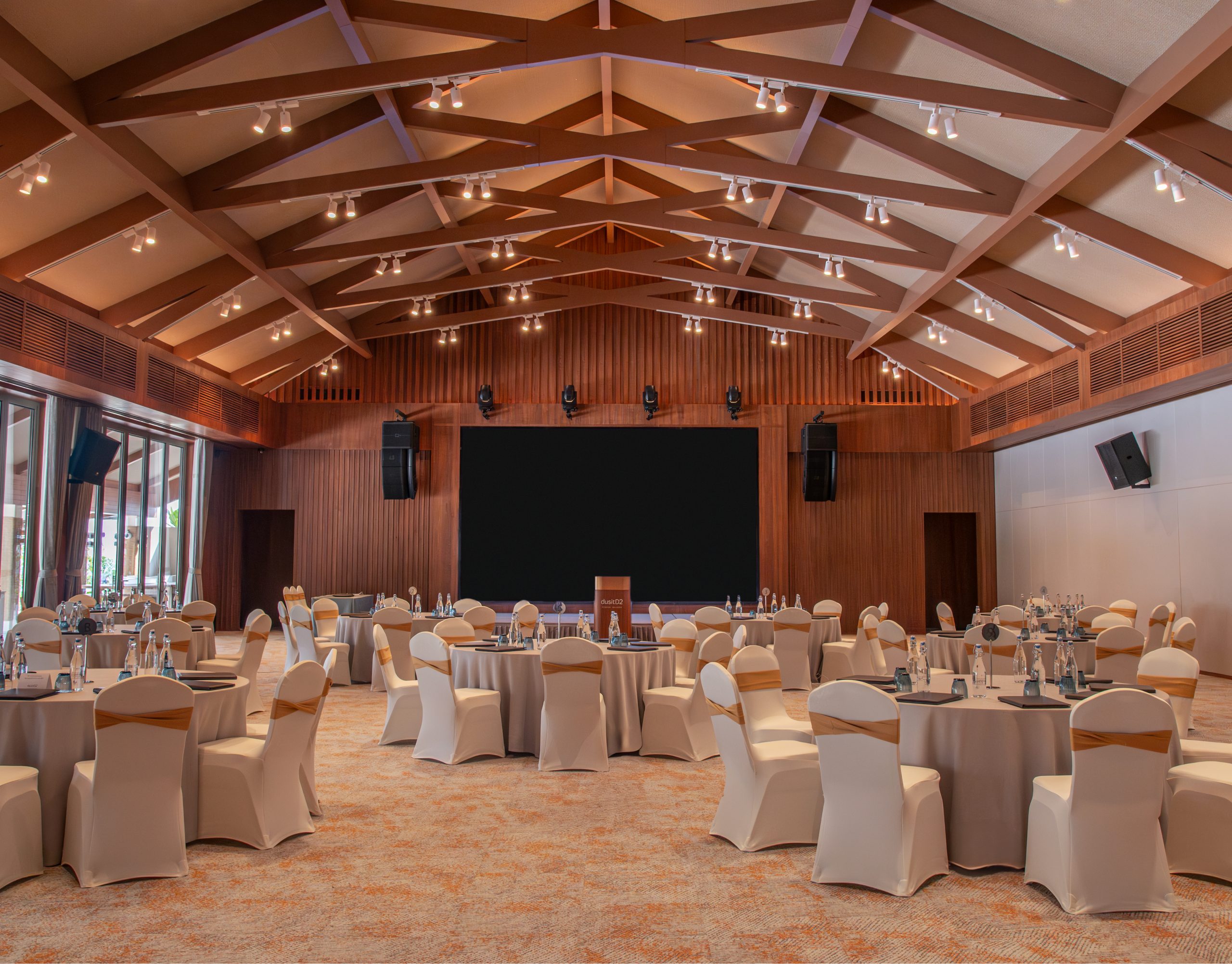
Dusit International, one of Thailand’s leading hotel and property development companies, has announced the opening of Feydhoo Hall, a landmark event venue at dusitD2 Feydhoo Maldives, redefining the possibilities for meetings, celebrations, and destination events in the Maldives.
Designed to bring scale, flexibility, and creativity to island gatherings, Feydhoo Hall represents a bold step forward in positioning the Maldives as a dynamic destination for conferences, weddings, and large-scale social occasions.
Feydhoo Hall offers a versatile event complex designed to accommodate a wide range of gatherings, from corporate meetings and conferences to weddings and social celebrations.
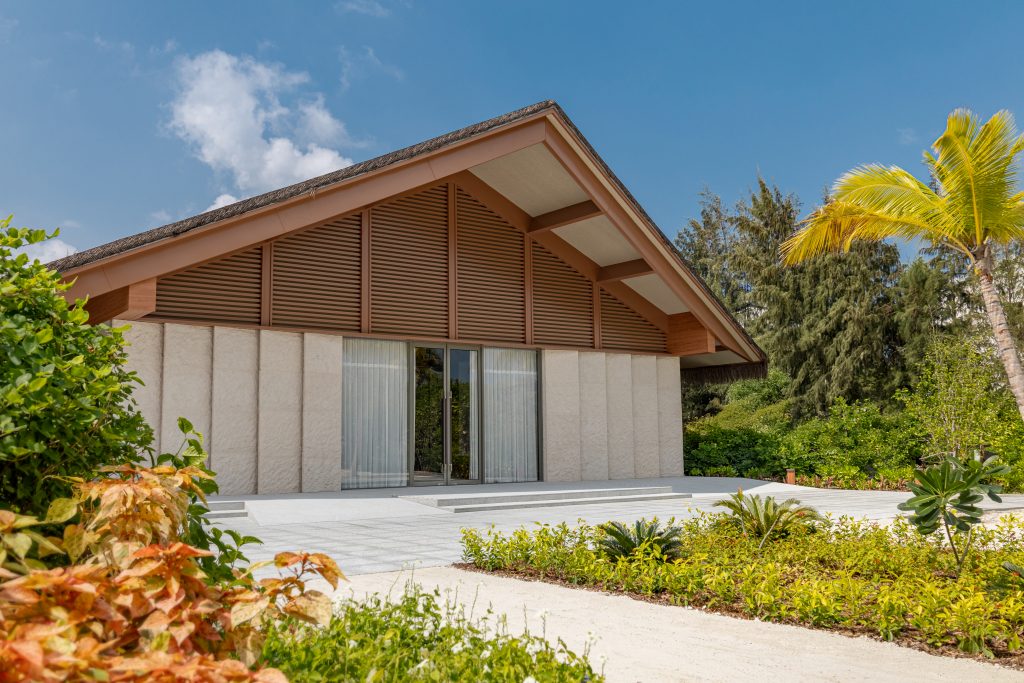
At its core is the 390 sqm Main Hall, capable of hosting:
- Up to 300 guests in theatre-style setup
- Up to 240 guests for dining and banquet-style events
- Up to 200 guests for cocktail-style receptions
- Up to 144 guests in cluster-round configuration
Enhancing the flexibility of the venue are additional dedicated spaces, including:
- A 110 sqm Veranda Terrace, ideal for welcome receptions, breakout sessions, and pre-event gatherings, accommodating up to 100 guests for cocktail-style events.
- A spacious 1,000 sqm Lawn Space, perfect for large-scale outdoor celebrations, destination weddings, and open-air events, accommodating up to 400 guests for cocktail receptions and up to 350 guests for dining setups.
- The 55 sqm Ekugai Meeting Room, designed for smaller meetings and executive sessions, accommodating up to 30 guests in theatre or dining setup and 24 guests in cluster-round format.
Together, these integrated spaces create a seamless indoor-outdoor event experience, allowing planners to design dynamic and personalised event journeys.
True to the dusitD2 brand’s lifestyle-driven philosophy, Feydhoo Hall introduces a fresh approach to meetings and events — where productivity meets creativity in an inspiring island setting.
The venue offers flexible meeting formats designed to suit different event needs, including:
- Half-Day Meeting Package (4 hours) — ideal for focused sessions, executive meetings, and creative workshops.
- Full-Day Meeting Package (8 hours) — designed for immersive conferences, extended workshops, and large-scale corporate gatherings.
These thoughtfully structured packages provide planners with the flexibility to create impactful and seamless experiences, whether hosting intimate strategy sessions or dynamic full-day events.
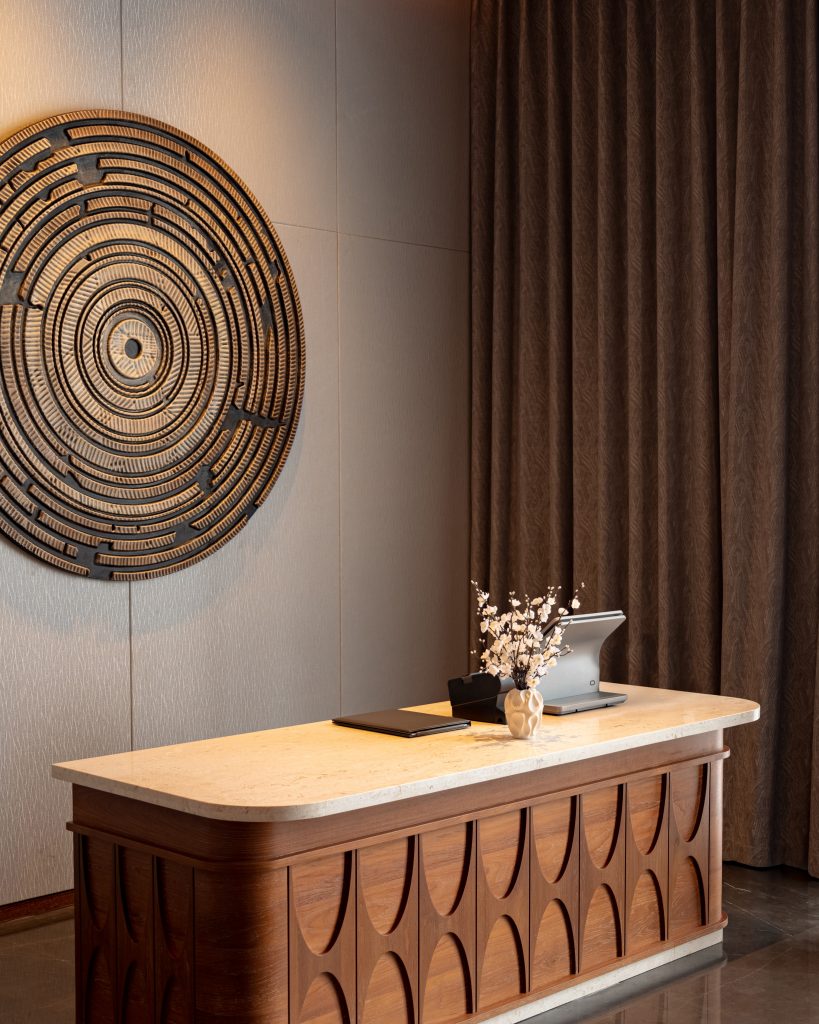
Located just seven minutes by speedboat from Velana International Airport, dusitD2 Feydhoo Maldives combines accessibility with vibrant lifestyle energy, offering event planners and guests a rare balance between convenience and tropical escape.
With the introduction of Feydhoo Hall, the resort strengthens its position as a versatile destination — not only for leisure travellers but also for international conferences, creative retreats, luxury weddings, and large-scale social celebrations seeking something refreshingly different in the Maldives.
Business
BBM expands retail presence with new Hulhumalé outlet
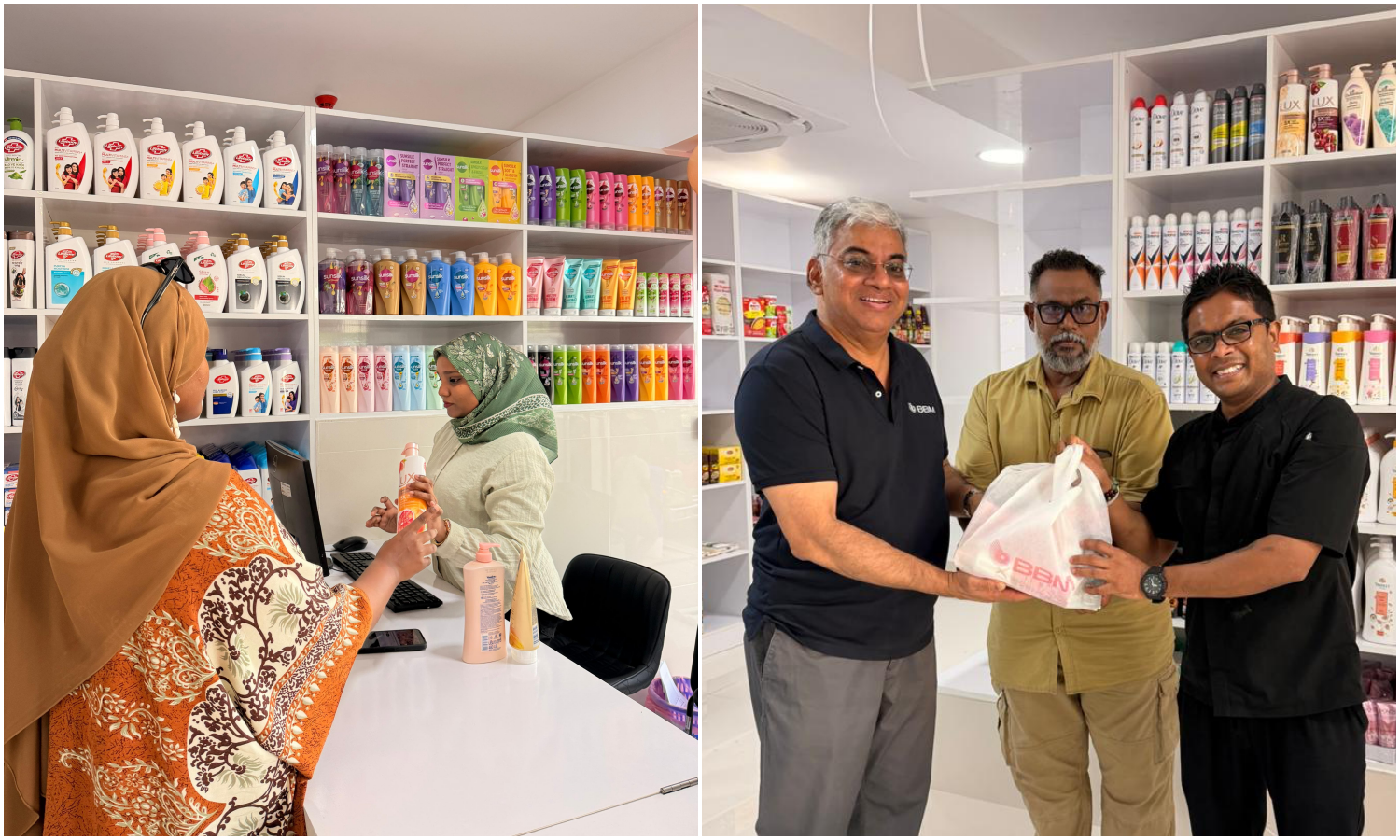
Bestbuy Maldives (BBM) opened a new wholesale store in Hulhumalé Phase 2 on Monday.
The outlet is located on the ground floor of Lot 20286, Nirolhu Magu, and is intended to improve access to BBM’s imported goods for residents of Hulhumalé Phase 2 and for businesses operating in the area.
According to the company, the opening forms part of its plan to expand services closer to customers in line with population growth in Hulhumalé.
With the opening of the new store, BBM’s full range of imported and distributed products will be available at the Hulhumalé Phase 2 location. These include consumer goods from international brands such as Lifebuoy, Vaseline and Unilever.
The store will also stock wholesale food products from brands including Daily, Cavin’s and Redman.
BBM has supplied goods to resorts, hotels and retail outlets across the Maldives for several years.
Action
Ataraxis Grand & Spa hosts integrated work-and-dive corporate retreat in Fuvahmulah
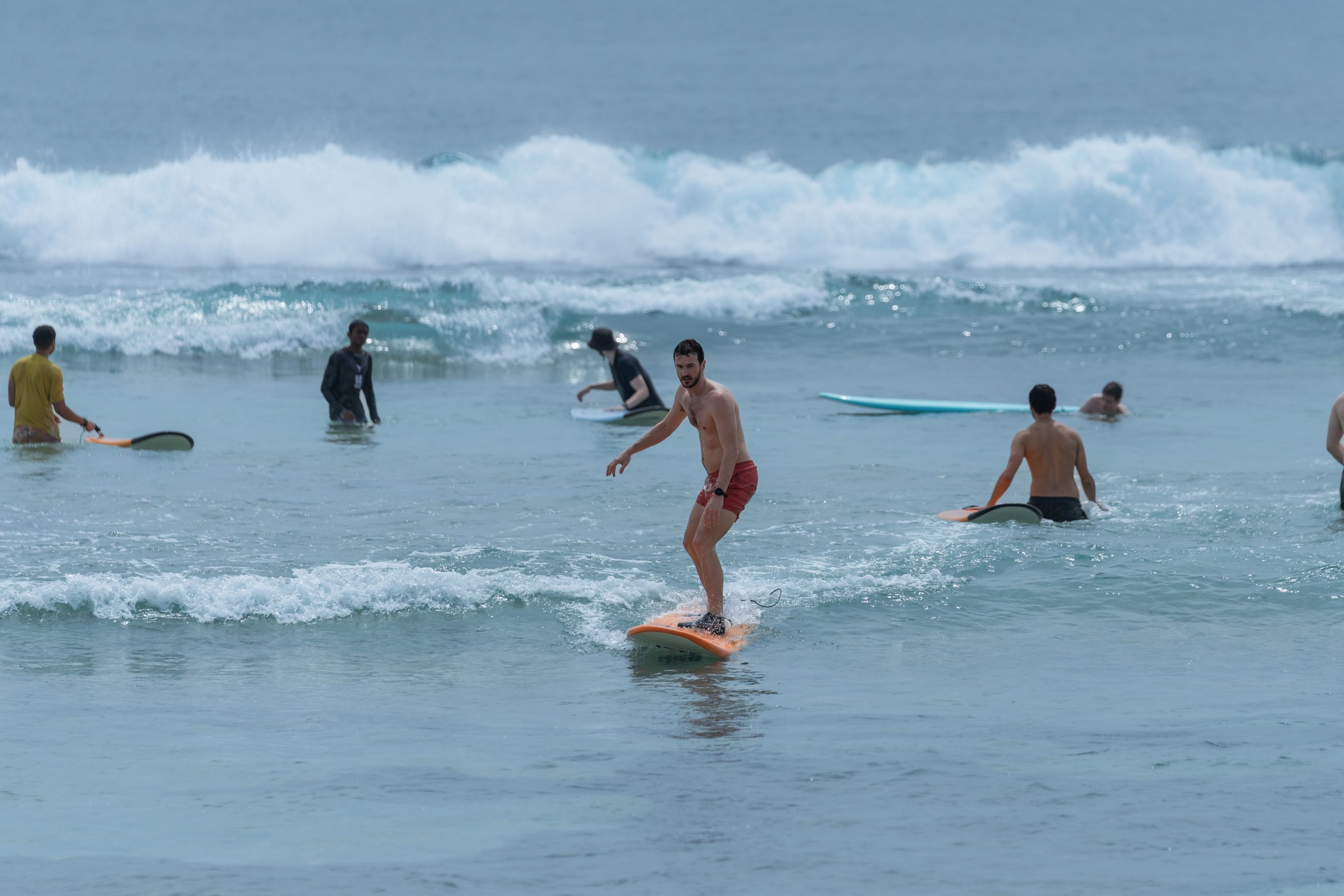
Ataraxis Grand & Spa recently hosted a week-long, closed corporate offsite in Fuvahmulah for a US-based artificial intelligence company, highlighting the island’s growing suitability for integrated work-and-experience retreats. The retreat brought a group of 36 international professionals to the property, which was reserved exclusively for the programme.
Designed as a private company offsite, the stay combined structured daily work sessions with guided diving and beginner-friendly surf experiences, creating a balanced format that blended focused collaboration with physical reset.
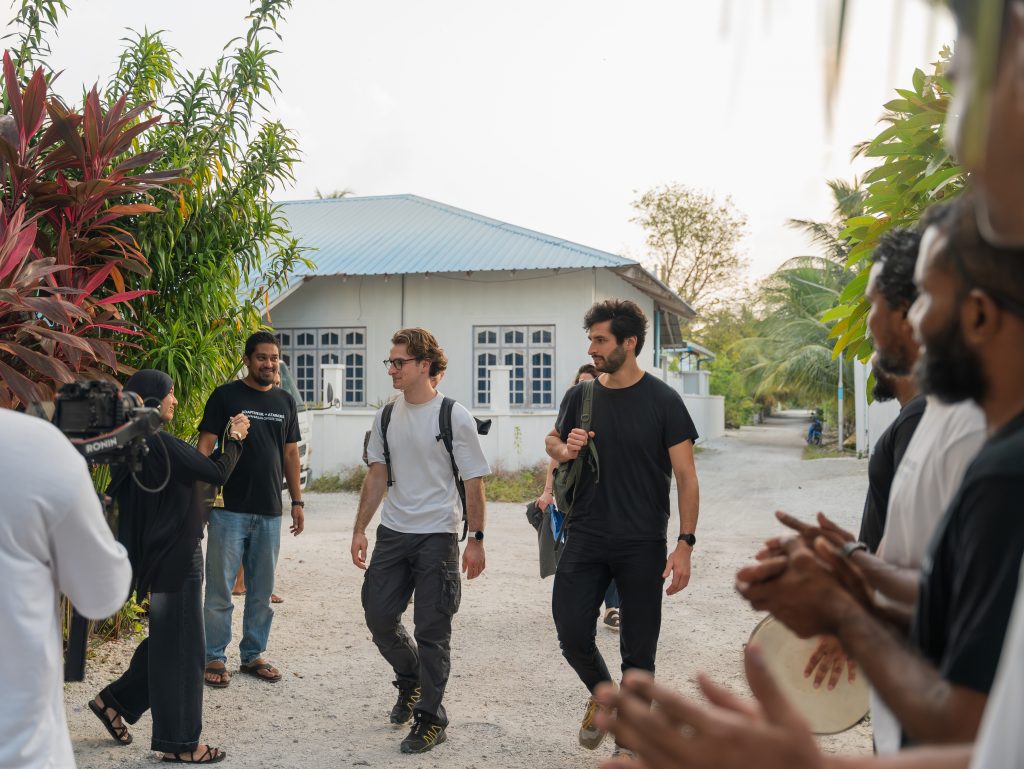
A notable component of the programme was dive training and certification. During the retreat, 17 participants completed their Open Water certification, while a further six undertook the Advanced Open Water course, with training and dives scheduled alongside work sessions as part of the integrated itinerary.
Throughout the week, participants worked on-site using dedicated shared spaces supported by reliable high-speed internet, allowing meetings, informal collaboration and scheduled activities to take place within a single, uninterrupted environment. This setup enabled teams to move seamlessly between work periods and organised ocean activities without leaving the property.
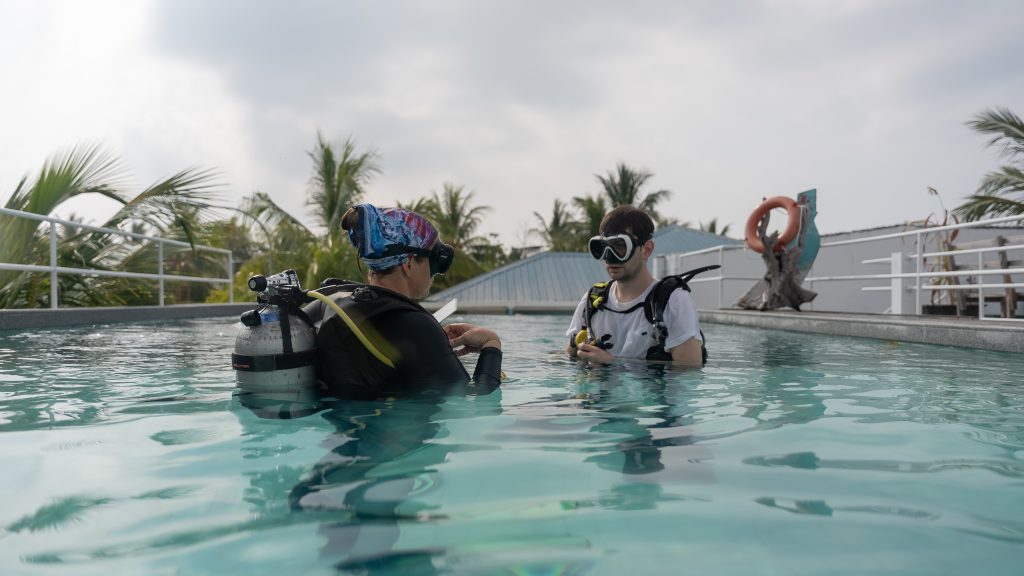
Fuvahmulah’s natural and operational advantages formed a key part of the retreat’s appeal. As one of the Maldives’ largest inhabited islands, it offers immediate access to pelagic dive sites, internationally recognised shark diving and surf breaks suitable for instruction, alongside the infrastructure required to support extended group stays.
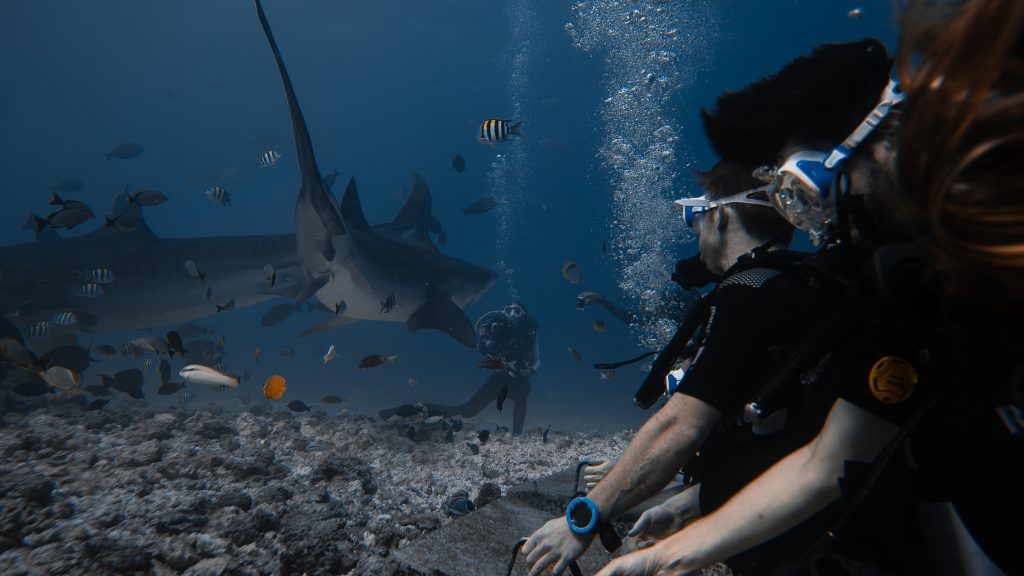
The offsite reflects a growing preference among technology and knowledge-sector teams for small-scale retreats that prioritise concentrated work environments and team cohesion over traditional conference formats. Such programmes typically involve longer stays and higher per-capita spend, aligning with sustainable, quality-driven tourism models.
The retreat also demonstrates how locally operated properties such as Ataraxis Grand & Spa are supporting this shift by delivering unified environments where accommodation, workspaces, connectivity and curated experiences operate as a single programme rather than separate services.
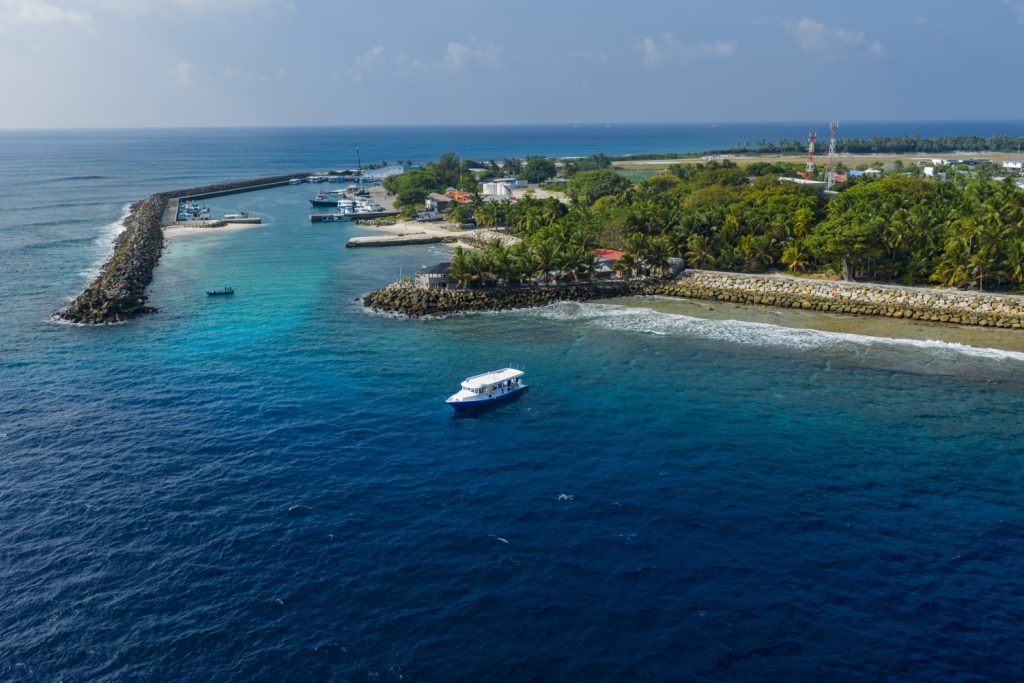
As organisations continue to explore alternative formats for strategy sessions, team resets and creative offsites, Ataraxis Grand & Spa’s experience positions Fuvahmulah as an increasingly viable destination for integrated corporate retreats.
Ataraxis Grand & Spa offers work-and-dive retreat programmes in Fuvahmulah that combine accommodation, dedicated workspaces, high-speed connectivity and organised diving and surfing.
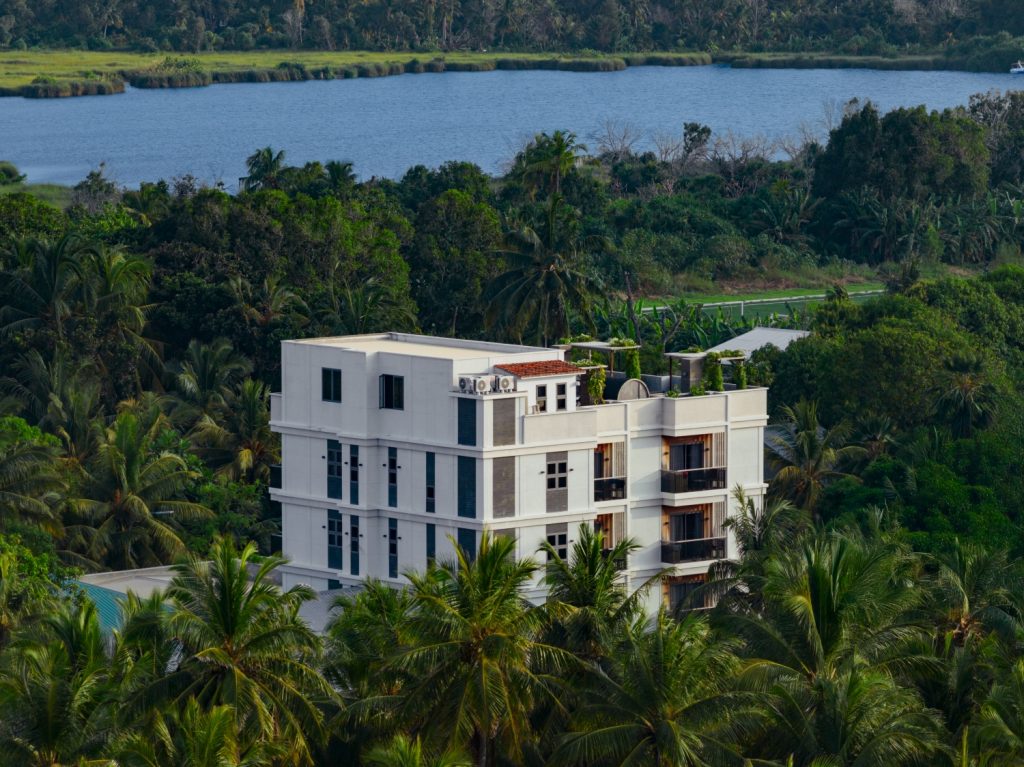
Further information on retreat formats and dive-inclusive stays is available via the Ataraxis Grand & Spa website.
-

 Drink1 week ago
Drink1 week agoProvence comes to Maldives with Château Minuty dinner at Milaidhoo Maldives
-
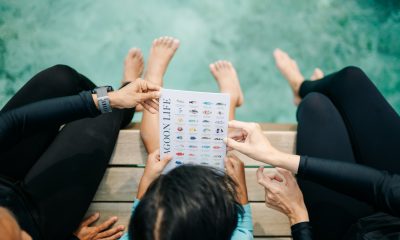
 News1 week ago
News1 week agoThe Ritz-Carlton Maldives, Fari Islands launches conservation programme for environmental observances
-
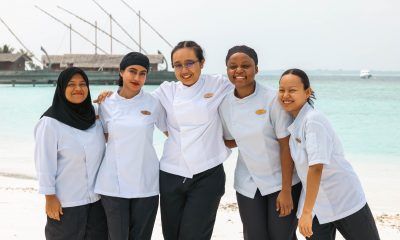
 Cooking1 week ago
Cooking1 week agoWomen at heart of kitchen: Milaidhoo Maldives marks International Women’s Day through gastronomy
-
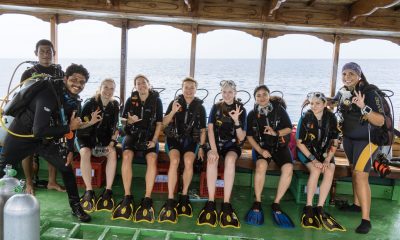
 Action1 week ago
Action1 week agoAtmosphere Foundation launches annual dive training scholarship for Maldivians
-

 Featured1 week ago
Featured1 week agoCity Iftar experience curated at JEN Maldives by Shangri-La
-

 Family1 week ago
Family1 week agoEaster goes playful at The Standard, Maldives with week-long Angry Birds celebration
-

 Entertainment7 days ago
Entertainment7 days ago‘One festival, every sense’: Fari Islands Festival announces August 2026 return
-
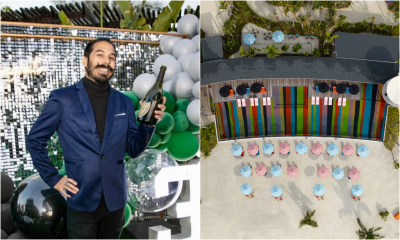
 Drink1 week ago
Drink1 week agoSO/ Maldives hosts tequila tasting and Lazuli Bar takeover for National Margarita Day









